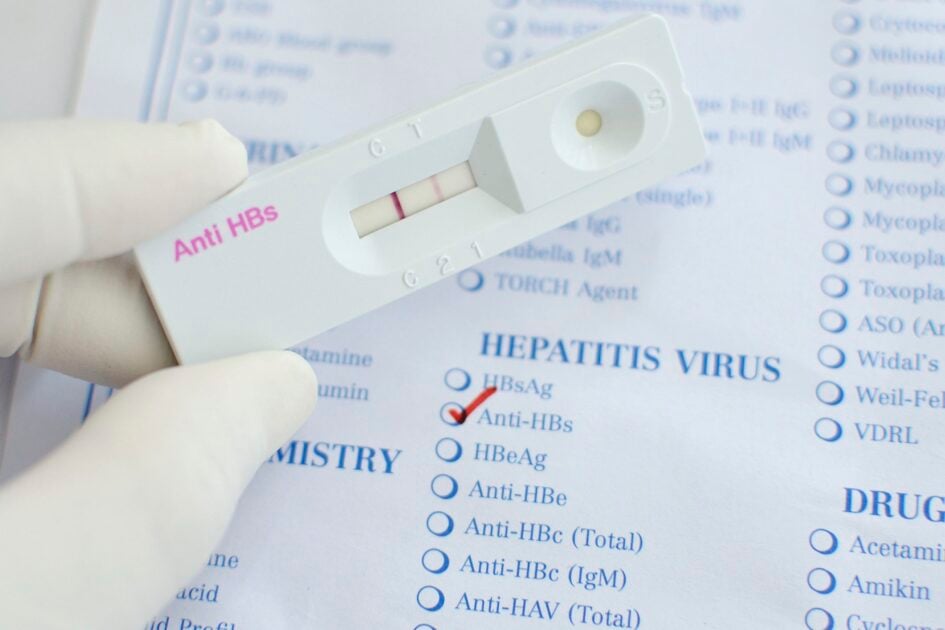Hepatitis C: Causes, symptoms and treatment
This is an infection of the liver most commonly caused by sharing needles

Hepatitis C is an infection of the liver caused by the Hepatitis C virus. It’s most commonly passed through sharing needles, and can cause a host of health problems.
The stages of Hepatitis C
There are four stages of Hepatitis C:
- The acute stage
- The chronic stage
- Compensated cirrhosis
- Decompensated cirrhosis
1. The acute stage
This lasts for the first six months of the infection. Most people do not experience symptoms during this stage.
However, when symptoms do occur, they can include:
- Fever
- Vomiting
- Stomach pain
- Loss of appetite
- Nausea (feeling sick)
- Tiredness
Around 1 in 5 people will fight off the Hepatitis C virus during this phase and clear it from their body.
2. The chronic stage
If Hepatitis C is not cleared from the body during the first six months, it becomes the chronic stage.
Not everyone will develop symptoms during this stage. However, symptoms of the chronic stage can include:
- Extreme tiredness
- Depression
- Short-term memory problems or difficulty concentrating
- Mood swings
- Digestive problems
- Joint and muscle aches and pains
- Headaches
- Flu-like symptoms
- Pain or discomfort in the liver area
- Stomach pains
- Itching
3. Compensated cirrhosis
This is scarring of the liver, as a result of long-term liver damage caused by Hepatitis C. Around one in five people with chronic hepatitis C develop cirrhosis. This usually takes 20 to 30 years, but it can happen quicker when people drink alcohol.
4. Decompensated cirrhosis
Some people with compensated cirrhosis will develop decompensated cirrhosis. This means the liver will stop working entirely. This is also known as liver failure.
Causes of Hepatitis C
To become infected with Hepatitis C, you must come into contact with the blood of an infected person. This can happening in different ways.
- Sharing injecting needles
- Blood transfusions in countries where medical equipment is not properly sterilised
- In rare cases, through unprotected sex
- In rare cases, from mother to child during childbirth
How do I know if I have it?
The only way to know is to get tested. You should get tested if:
- You have any of the above symptoms
- You have injected drugs with unsterilised equipment
- You have had sex without a condom
- You can get tested by your GP, a sexual health clinic, or a drug treatment service.
You can find a list of sexual health clinics here.
You can find a list of drug treatment services here.
Treatment for Hepatitis C
Hepatitis C is treated with a combination of two drugs. Treatment usually lasts for six or twelve months. This treatment is effective in 55% of people. Even if it does not work, it can slow down the progression of liver damage.
How to prevent Hepatitis C
If you inject drugs, you should never share any injecting equipment, such as needles, syringes, spoons and filters. For more information on safer injecting, check out Merchant Quay’s guidelines.
You should use a condom whenever you have vaginal, anal or oral sex.
If you have Hepatitis C, you can reduce the risk of passing it on by:
- Not sharing your toothbrush or razor
- Cleaning any blood from surfaces with household bleach
- Not sharing needles or syringes with others
- Not donating blood
- Using condoms when you have sex
Supports and Services
- Drugs.ie: Online information and support for drug and alcohol use. Includes a national directory of drug and alcohol services
- HSE Drugs, Alcohol, HIV and Sexual Health Helpline: Freephone 1800 459 459.
- The Club Drug Clinic offers advice, support and detoxification for GHB (Liquid Ecstasy, G) and other chemsex and club drugs is an integrated person centred specialist addiction service: Tel 016488600
- Rialto Community Drug Team
- Find a local service through the National Directory for Drug and Alcohol Services at Drugs.ie






